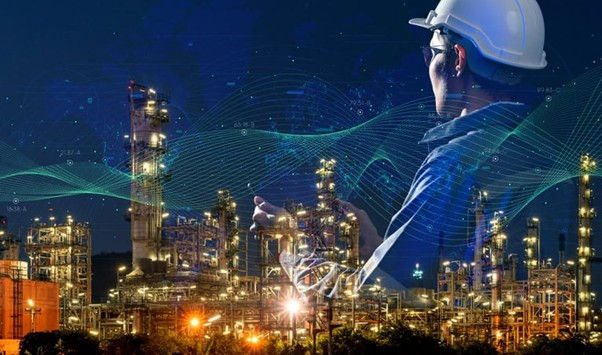Smart Automation Driving the Future of Oil and Gas Refineries
- jyothi8501joseph
- Dec 26, 2024
- 4 min read

The oil and gas refining industry is undergoing a profound transformation, driven by advancements in automation. No longer confined to simple mechanization, automation now encompasses intelligent systems that predict, optimize, and enhance every aspect of refinery operations. As global pressures demand safer, more efficient, and environmentally conscious practices, automation stands at the forefront of innovation, paving the way for a smarter and more sustainable future in refining.
The Evolution of Refinery Automation
Modern refineries are marvels of complexity, where precision and consistency are paramount. Historically, manual operations formed the backbone of refinery processes, but they were often limited by human error and inefficiency. Today, automation solutions are not merely replacing manual efforts—they are elevating operational capabilities by integrating cutting-edge technologies such as Artificial Intelligence (AI), Machine Learning (ML), and the Industrial Internet of Things (IIoT).
Key Benefits of Refinery Automation:
Operational Efficiency: Automated systems ensure optimal use of energy and resources, reducing waste and enhancing productivity.
Enhanced Safety: AI-powered safety systems monitor conditions in real-time, predicting hazards and responding proactively to emergencies.
Predictive Maintenance: IoT sensors and AI algorithms detect potential equipment failures before they occur, minimizing downtime.
Environmental Sustainability: Automation helps monitor and reduce emissions, aligning operations with global environmental standards.
Technologies Transforming Refinery Operations
Automation is revolutionizing the refining industry by introducing innovations that address long-standing challenges and unlock new opportunities:
1. Advanced Process Control (APC): Refineries rely on APC systems to balance complex variables and maintain consistent output. Modern APC solutions leverage AI to:
Automatically adjust refining parameters in real-time.
Optimize energy usage while ensuring product quality.
Reduce process variability, leading to higher efficiency.
2. Digital Twins: Digital twin technology creates virtual replicas of refinery systems, enabling operators to simulate changes and predict outcomes without disrupting real-world operations. These systems provide:
Real-time performance monitoring.
AI-driven predictive analytics for operational optimization.
Enhanced training environments for workforce development.
3. Collaborative Robotics: Robots are no longer confined to isolated tasks; they now work alongside human operators. Cobots (collaborative robots) enhance efficiency by:
Automating repetitive and hazardous tasks.
Supporting maintenance and inspection in high-risk areas.
Learning and adapting to new tasks using AI.
4. Corrosion Monitoring Automation: Given the environmental and structural challenges in refinery operations, automated systems monitor corrosion in pipelines and equipment. IoT sensors combined with AI analytics provide:
Early detection of corrosion risks.
Predictive maintenance schedules.
Reduced likelihood of critical failures.
5. Integrated Control Centers: Next-generation control rooms offer immersive 3D visualizations and AI-assisted decision-making tools. Operators can manage complex refinery systems with greater precision, ensuring seamless coordination across facilities.
Showcasing the Future: India’s Premier Automation Expos
Automation Expo South 2025: Localized Solutions for South Asia
Scheduled in March at Chennai, Automation Expo South 2025 focuses on regional challenges unique to refineries. From coastal environments prone to corrosion to regulatory frameworks demanding efficiency, this expo will highlight solutions tailored to these needs.
Key Showcases:
Corrosion Monitoring: IoT and AI-enabled systems designed for tropical and coastal conditions.
Smart Safety Systems: Demonstrations of AI-driven emergency response solutions.
Adaptive APC Systems: Live insights into how machine learning optimizes refining processes.
Automation Expo 2025, Mumbai: A Global Perspective
Complementing the Chennai edition, Automation Expo 2025 in August at Mumbai will bring an international outlook, featuring technology providers from across the globe. This expo serves as a hub for knowledge exchange and cutting-edge innovation.
Key Highlights:
Digital Twin Demonstrations: Explore the integration of virtual refinery replicas with real-time data and predictive AI.
Autonomous Robotics: Robots for hazardous maintenance tasks, including drones and pipeline crawlers.
Integrated Control Centers: Experience next-gen control rooms equipped with immersive technology.
How These Expos Bring Solutions to Life
Both events offer unparalleled opportunities to:
Witness Live Demonstrations: Explore real-world applications of automation solutions tailored to refinery operations.
Engage in Interactive Workshops: Learn hands-on how to implement AI and robotics into existing systems.
Network with Experts: Connect with technology providers, industry leaders, and peers to exchange ideas and build collaborations.
Access Training Simulators: Experience augmented reality and virtual reality solutions designed for workforce development.
The Role of Automation in Environmental Sustainability
As the oil and gas sector faces increasing scrutiny over its environmental impact, automation is emerging as a vital tool for achieving sustainability goals. Key contributions include:
Energy Optimization: Advanced systems minimize energy consumption during refining processes without compromising output.
Emissions Control: Real-time monitoring solutions identify and mitigate greenhouse gas emissions.
Resource Efficiency: Smart systems optimize material usage and reduce waste generation.
By integrating these solutions, refineries can significantly reduce their carbon footprint while maintaining profitability and compliance with environmental regulations.
A Look to the Future: Trends in Refinery Automation
As the automation landscape evolves, several emerging trends are set to redefine refinery operations:
Edge Computing: Processing data closer to refinery equipment allows for instantaneous decision-making, crucial in high-stakes environments.
Autonomous Maintenance: Robots equipped with AI perform inspections and repairs in hazardous conditions, reducing human exposure.
Adaptive Systems: Refinery lines that can self-configure based on product requirements, enabling greater flexibility and reduced downtime.
Empowering Refinery Professionals
For professionals looking to integrate automation into their operations, the expos and advancements in automation provide actionable takeaways:
Integration Strategies: Explore solutions that seamlessly integrate with existing infrastructure.
Cost-Benefit Analysis: Evaluate the ROI of automation technologies.
Regulatory Compliance: Learn how to meet environmental and safety standards.
Workforce Engagement: Access training programs that prepare teams for the future of automation.
Join the Automation Revolution
Automation is no longer a choice but a necessity for refineries aiming to thrive in a rapidly changing world. By embracing AI, robotics, and advanced technologies, the oil and gas sector is poised to achieve unparalleled levels of efficiency, safety, and sustainability.
Whether you are modernizing existing facilities or building new ones, these expos provide the insights, tools, and collaborations needed to shape the future of refinery operations.
For more details, visit:
.png)
Comentarios